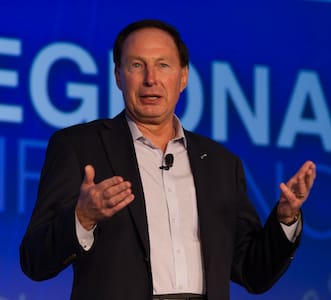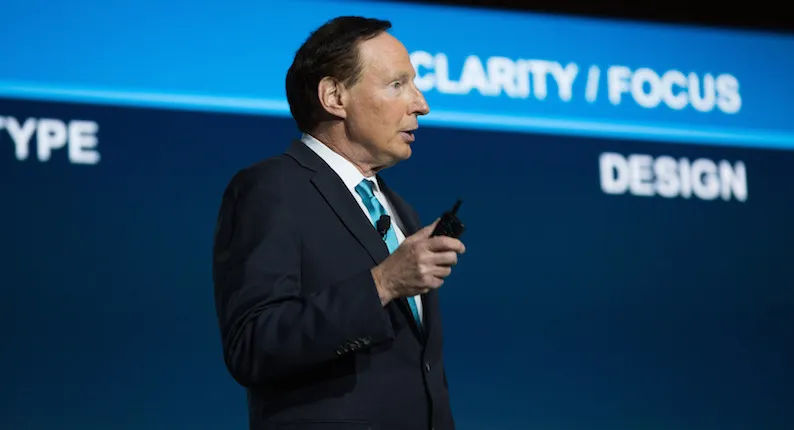National Association of Chain Drug Stores president and CEO Steve Anderson recently provided the group’s members with an update about implementation of the new rule governing reimbursement to pharmacy operators for prescriptions filled under the Medicaid program. His remarks are of interest, both for what they say about the issue and for the style of leadership Anderson brings to NACDS.

Steve Anderson
The method of calculating Medicaid payments to pharmacies has been a major concern for almost a decade. In an attempt to carry out provisions in the Deficit Reduction Act of 2005, the Centers for Medicare and Medicaid Services proposed a payment model based on average manufacturer’s price whose financial impact would have led to the closure of 11,000 retail pharmacies in the United States, or 20% of the total, according to a PwC study cited by Anderson.
NACDS, together with the National Community Pharmacists Association, filed a lawsuit in 2007 that forestalled the potentially disastrous implementation of those changes.
Years of subsequent work on the part of NACDS and its members and allies led to withdrawal of the original plan and its replacement with the rule now being put into effect.
The consensus in the industry is that, while still cutting reimbursement rates, the new AMP rule will be more manageable for pharmacy operators trying to meet the needs of Medicaid patients. Still, Anderson asserts, pharmacy operators cannot afford to take their eye off the ball.

“It is clear that one of NACDS’ top priorities must be to actively monitor and analyze the implementation of the rule — including actions by state governments and by CMS,” he said. “As states make legislative and regulatory changes in light of the final rule — to implement AMP-based federal upper limits (FULs), cost-based reimbursement for brands, and professional dispensing fee reimbursement — and as CMS considers related state plan amendments, vigilance will be essential to ensure these changes are conducive to patient access.”
He went on to say that diligence will be required to ensure that the provisions in the rule related to drug reimbursement and dispensing fees that the association and NCPA fought long and hard for are carried out as intended at the state level.
“NACDS member companies and NACDS policy and economic experts are continuing to evaluate the specific effects of the AMP-based FULs on reimbursement,” Anderson said. “We will maintain a keen eye to identify any problems that arise as this process unfolds.
“As has been the case for the past near-decade, NACDS will continue to evaluate all of these dynamics according to its member-centric approach, and according to any ramifications for patient access.”
The measured stance reflected in Anderson’s statement on AMP-based FULs typifies his approach to running NACDS. A avid student of history and politics, Anderson takes the long view of the question before him, and seeks the input of diverse stakeholders. The NACDS policy council, executive committee and full board of directors, as well as individual members, were consulted while formulating the association’s position on the new CMS rule.
Anderson’s leadership skills were on display at the NACDS Annual Meeting in Palm Beach, Fla., last month. Speaking at one of the general business sessions, he talked about the difficulties of navigating in an increasingly complex world, where traditional power structures are eroding, and challenged attendees to leverage the power of voluntary associations to address issues in the social, political and economic realms.
NACDS has, in Anderson’s words, cracked the code, learning how to help its members flourish in a turbulent business and regulatory environment. The association’s accomplishments — not the least of which is the difference it made for pharmacies and patients on Medicaid reimbursement policy — are impressive.
The guidance of Anderson — who earlier this year became only the third person to be recognized as the trade association executive of the year by CEO Update — has been in building that record.







